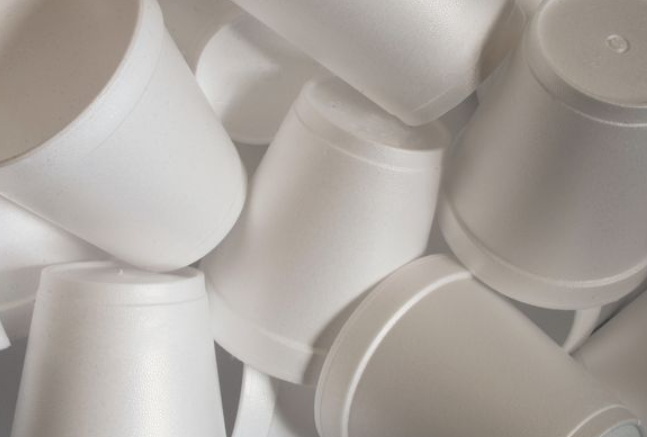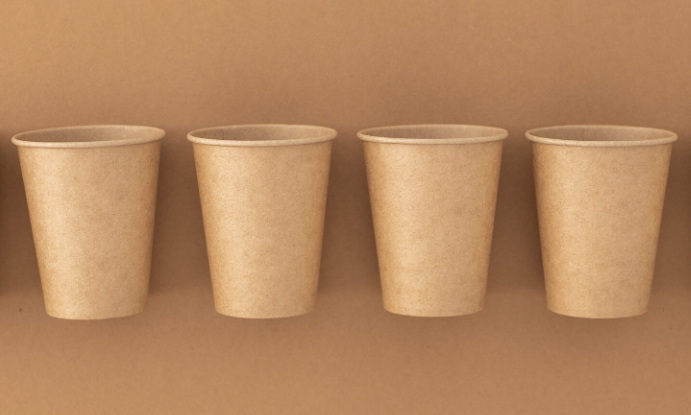
Content Menu
● History of No Disposable Cup Day
● The Environmental Impact of Disposable Cups
● Benefits of Reusable Cups
● How to Participate in No Disposable Cup Day
● Innovative Solutions: Smart Reusable Cups
● Case Studies: Successful Implementation of Reusable Cups
● The Role of Businesses in Promoting Sustainability
● Community Engagement and Education
● The Future of Sustainability: A Circular Economy
● Conclusion
● FAQ
>> 1. What is No Disposable Cup Day?
>> 2. Why is No Disposable Cup Day important?
>> 3. How can I participate in No Disposable Cup Day?
>> 4. What are the benefits of using reusable cups?
>> 5. How can businesses support No Disposable Cup Day?
● Citations:
In an era where environmental awareness is increasingly important, initiatives like No Disposable Cup Day play a crucial role in promoting sustainability and reducing waste. This annual event, observed on October 4th (though some sources suggest November 4th for 2025), aims to encourage individuals and communities to switch from disposable cups to reusable alternatives, thereby mitigating the environmental impact of single-use products. In this article, we will delve into the significance of No Disposable Cup Day, its history, and how you can participate in this eco-friendly movement.

History of No Disposable Cup Day
No Disposable Cup Day was established to address the growing concern over the environmental toll of disposable products, particularly single-use cups. The initiative was founded in the UK, where millions of disposable cups are used daily, contributing significantly to waste and pollution. The day serves as a reminder that small actions, such as using a reusable cup, can collectively make a substantial difference in reducing waste and promoting sustainability.
The Environmental Impact of Disposable Cups
Disposable cups, often made from paper or plastic, pose a significant environmental challenge. Globally, over 500 billion disposable cups are used annually, with only a small fraction being recycled. In the UK alone, 7 million disposable cups are used and thrown away daily, with most ending up in landfills or littering natural landscapes[8]. This results in massive amounts of waste and contributes to soil and water pollution[2].
The production of disposable cups requires significant amounts of energy and water. From extracting raw materials to manufacturing and transportation, the carbon footprint associated with disposable cups is substantial[2]. Moreover, many traditional disposable cups are made from non-biodegradable materials like plastic or lined with polyethylene, which prevents them from decomposing naturally and contributes to long-term environmental harm[2].
Benefits of Reusable Cups
Switching to reusable cups offers numerous benefits, both environmentally and economically. Reusable cups reduce the demand for single-use products, thereby decreasing waste and the carbon footprint associated with manufacturing disposable cups. Many businesses now offer discounts for customers who bring their own reusable cups, making the switch both environmentally and economically beneficial[6].
Reusable cups can also serve as a marketing tool for businesses. Branded reusable cups can help establish a company as sustainable and green, attracting new audiences and demographics in the process[6]. By offering seasonal and limited-edition designed cups, businesses can encourage customers to invest in reusable cups, fostering a sense of community and shared values[6].
How to Participate in No Disposable Cup Day
Participating in No Disposable Cup Day is both rewarding and fun. Here are some ways you can get involved:
- Use a Reusable Cup: Commit to using a reusable cup for your beverages, not just on this day, but as a regular practice.
- Encourage Others: Invite friends, family, and colleagues to join you in this initiative by using reusable cups.
- Spread the Word: Share your commitment on social media using the hashtag #NoDisposableCupDay to raise awareness and inspire others.
- Organize a Community Event: Host an event to collect disposable cups for recycling and distribute reusable cups as alternatives.
- Support Eco-Friendly Brands: Support cafes and brands that encourage the use of reusable cups by offering discounts or other incentives.
- Donate Reusable Cups: Donate reusable cups to local schools, offices, or community centers to help others make the switch to sustainable alternatives.
- Educate Yourself and Others: Learn about the environmental impact of disposable cups and share this knowledge within your community.
Innovative Solutions: Smart Reusable Cups
Innovations like smart reusable cups are transforming the way we approach sustainability. These cups can be digitally tracked throughout their life cycle, offering businesses a way to monitor their environmental impact and improve customer engagement.

Case Studies: Successful Implementation of Reusable Cups
The Australian Open 2025 (AO 2025) is a prime example of how reusable cups can be successfully implemented on a large scale. Tennis fans attending the event were served beverages in reusable cups, an initiative by Sustainability Victoria to reduce single-use plastic waste and promote sustainable practices[3]. This effort is expected to prevent the use of 50,000 single-use cups during the tournament, equivalent to approximately 400 kilograms of plastic[3].
Similarly, there is an urgent call for implementing a reusable cup system at Kai Tak Sports Park in Hong Kong. This initiative aims to replace disposable cups with reusable alternatives, highlighting the effectiveness of such systems in reducing waste and promoting sustainability[7].
The Role of Businesses in Promoting Sustainability
Businesses play a crucial role in promoting sustainability by encouraging the use of reusable cups. By offering discounts to customers who bring their own cups, businesses can incentivize sustainable practices while reducing their environmental footprint[6]. Additionally, selling branded reusable cups can help businesses establish a green image, attracting environmentally conscious consumers[6].
Community Engagement and Education
Community engagement and education are essential components of No Disposable Cup Day. By organizing events and campaigns that raise awareness about the environmental impact of disposable cups, communities can inspire collective action towards sustainability. Educating individuals about the benefits of reusable cups and how they can contribute to a more eco-friendly lifestyle is crucial for long-term change.
The Future of Sustainability: A Circular Economy
As we move towards a more sustainable future, adopting a circular economy model is essential. This involves designing systems where materials are kept in use for as long as possible, reducing waste and the continuous demand for new resources. Reusable cups are a simple yet effective step in this direction, demonstrating how small changes can contribute to a larger shift towards sustainability.
Conclusion
No Disposable Cup Day serves as a powerful reminder of the impact of individual actions on environmental sustainability. By embracing reusable cups, we can significantly reduce waste and contribute to a more eco-conscious world. As we move forward, it's crucial to continue promoting sustainable practices and supporting initiatives that encourage the use of reusable alternatives.

FAQ
1. What is No Disposable Cup Day?
No Disposable Cup Day is an annual event that encourages individuals to switch from disposable cups to reusable alternatives, aiming to reduce waste and promote sustainability.
2. Why is No Disposable Cup Day important?
It is important because it highlights the environmental impact of disposable cups and encourages collective action to reduce waste and promote sustainable practices.
3. How can I participate in No Disposable Cup Day?
You can participate by using reusable cups, encouraging others to do the same, spreading awareness on social media, and organizing community events to promote sustainability.
4. What are the benefits of using reusable cups?
Reusable cups reduce waste, decrease the carbon footprint associated with manufacturing disposable cups, and can offer economic benefits through discounts at participating businesses.
5. How can businesses support No Disposable Cup Day?
Businesses can support No Disposable Cup Day by offering discounts for customers who bring their own reusable cups, implementing cup recycling programs, and promoting sustainable practices within their operations.
Citations:
[1] https://www.awarenessdays.com/awareness-days-calendar/no-disposable-cup-day-2025/
[2] https://www.hotpackwebstore.com/blogs/hotpack-blogs/the-environmental-impact-of-disposable-cups-and-how-suppliers-can-help
[3] https://www.packagingnews.com.au/sustainability/ao-2025-swaps-single-use-plastics-for-reusables
[4] https://www.daysoftheyear.com/days/no-disposable-cup-day/
[5] https://stack-cup.com/blogs/news/the-environmental-impact-of-disposable-cups
[6] https://beyondthebean.com/2022/12/05/the-reusable-cup-revolution/
[7] https://www.thestandard.com.hk/breaking-news/fc/4/226504/-Urgent-call-for-reusable-cup-system-at-Kai-Tak-Sports-Park-amidst-alarming-disposable-utensil-usage
[8] https://www.unisort.co.uk/the-impact-of-single-use-cups-on-the-environment-how-the-unisort-cup-collector-makes-a-difference/
[9] https://stories.starbucks.com/emea/stories/2021/emea-cup-share-program-2025/
[10] https://www.greenpeace.org/eastasia/blog/7499/sheung-wan-borrow-and-return-cup-program-gives-the-earth-a-coffee-break/
[11] https://mtpak.coffee/2025/01/disposable-takeaway-coffee-cups-waste/
[12] https://sd.swireproperties.com/2023/en/performance-environment/resource-and-circularity/supporting-a-circular-economy-for-takeaway-packaging
[13] https://awareness-days.co.uk/awareness-day/no-disposable-cup-day/2029-10-04/
[14] https://www.greenpeace.org/hongkong/issues/plastics/press/40348/greenpeace-unveils-first-study-on-the-environmental-performance-of-east-asias-rental-reuse-cup-system-reuse-saves-more-resources-than-disposable-including-the-recycled/
[15] https://juicepromotions.com/want-to-stay-ahead-in-2025-make-branded-reusable-coffee-cups-your-must-have-promo-item/
[16] https://hub.dbis.edu.hk/bulletin/sustainability-council-ptsa-bring-your-own-initiative-international-food-fair-2025/
[17] https://www.ecogots.com/en/plastic-cups-for-events-and-impact-on-the-environment/
[18] https://circulars.iclei.org/update/wcef-2025-accelerator-session-tackling-single-use-cities-promoting-reusable-packaging/
[19] https://multimedia.scmp.com/infographics/news/hong-kong/article/3259438/plastic-ban/index.html
[20] https://nationwidewasteservices.co.uk/the-environmental-impact-of-disposable-coffee-cups-in-the-uk/

















